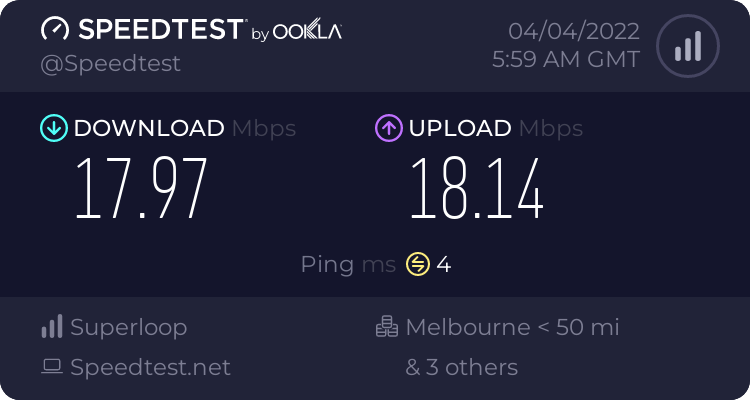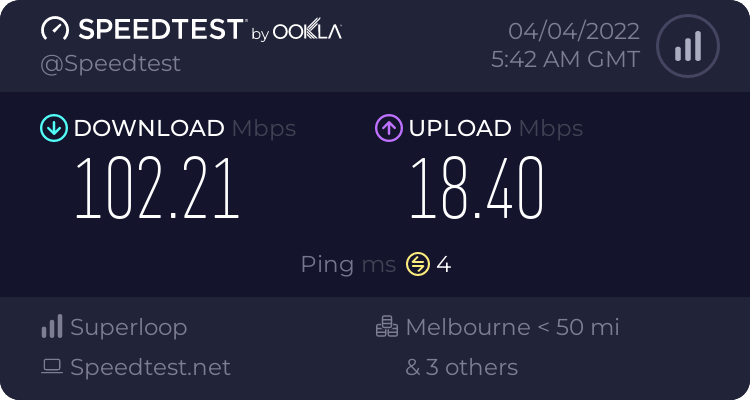Mr Solis
Occasional Visitor
I've recently dirty flashed 386.5 over 386.4 and noticed my download speed had deteriorated (~102mbps reduced to ~18mbps via Ookla) but the built in WebUI Internet Speed test is giving me expected results (102mbps/19mbps). I have Traditional QoS enabled with CTF disabled and this was previously working as intended but it seems to have broken with 386.5.
Thinking it was an issue with incompatible configurations between firmware revisions, I flashed 386.5_2 over 386.5 and performed a hard reset (reset button and again with WPS button) but am still experiencing the same issues. Everything else is working fine.
I've noticed that my download speed and upload speed are the same since 386.5. The issue seems to be related to the upload limit under Traditional QoS because when I increase its value, my download speeds increase accordingly.
Is anybody else experiencing this issue or is able to shed some light on a solution?
Cheers!
QoS configuration:

386.5_2 Traditional QoS enabled:

386.5_2 QoS disabled:

Thinking it was an issue with incompatible configurations between firmware revisions, I flashed 386.5_2 over 386.5 and performed a hard reset (reset button and again with WPS button) but am still experiencing the same issues. Everything else is working fine.
I've noticed that my download speed and upload speed are the same since 386.5. The issue seems to be related to the upload limit under Traditional QoS because when I increase its value, my download speeds increase accordingly.
Is anybody else experiencing this issue or is able to shed some light on a solution?
Cheers!
QoS configuration:
386.5_2 Traditional QoS enabled:

386.5_2 QoS disabled:




